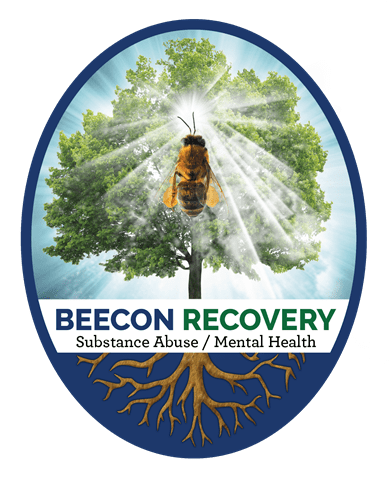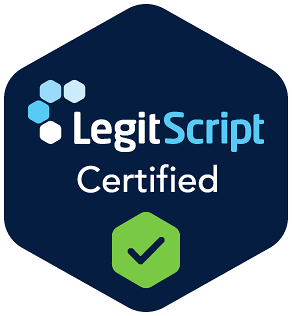Understanding Epigenetic Testing
The Science Behind Epigenetic Testing
Epigenetic testing involves analyzing chemical modifications to DNA that influence gene expression without altering the genetic code itself. These changes can be affected by various factors, including lifestyle, environment, and experiences. Understanding epigenetic mechanisms allows us to gain insights into how certain genes may predispose individuals to addiction or mental health disorders.
Through epigenetic testing, we can identify markers associated with substance use disorders and mental health challenges. This scientific approach enables us to tailor treatment strategies based on individual genetic profiles, ensuring a more effective recovery process.
| Epigenetic Modification | Description |
|---|---|
| DNA Methylation | Influences gene expression by adding methyl groups, often reducing gene activity. |
| Histone Modification | Alters the structure of histones, affecting how tightly DNA is wrapped and its accessibility for transcription. |
| Non-Coding RNA | Regulates gene expression at various levels, playing a significant role in cellular processes. |
How Epigenetic Testing Guides Personalized Addiction Treatment
By leveraging epigenetic testing, we create personalized addiction treatment plans that address the unique needs of each individual. This information allows us to understand specific genetic predispositions, helping us determine the most effective therapies and interventions for our clients.
For instance, if a genetic marker indicates sensitivities to certain substances, we can avoid prescribing medications that might trigger adverse reactions. Furthermore, understanding epigenetic factors allows us to recommend lifestyle changes and therapeutic practices that can enhance recovery.
| Key Benefits of Epigenetic Testing in Addiction Treatment |
|---|
| Identification of genetic predispositions |
| Customized treatment plans |
| Informed medication management |
| Tailored lifestyle recommendations |
At Beecon Recovery, we value personalized approaches that integrate advanced scientific methods like epigenetic testing. By incorporating this knowledge into our treatment paradigms, we aim to provide the highest quality support for those navigating the complexities of addiction recovery. For more about the intersection of personalized care and recovery strategies, explore our resources on the role of nutrition in supporting mental health and sobriety and combining traditional and holistic therapies for comprehensive recovery.
Benefits of Epigenetic Testing
Epigenetic testing plays a crucial role in shaping personalized recovery plans and understanding genetic predispositions. At Beecon Recovery, we believe that leveraging these insights can greatly enhance the quality of our treatment programs.
Personalized Recovery Plans
Epigenetic testing allows us to create tailored recovery plans that align with an individual’s unique biological makeup. By assessing how genes express themselves due to environmental factors and lifestyle choices, we gain valuable insights into the most effective treatment strategies for each person. This personalization can lead to better engagement in therapy and improved treatment outcomes.
| Benefit | Description |
|---|---|
| Tailored Interventions | Strategies developed specifically for individual genetic profiles. |
| Enhanced Effectiveness | Higher likelihood of successful treatment outcomes due to customized approaches. |
| Increased Adherence | Individuals are more likely to stick with treatment that feels relevant to their specific needs. |
Understanding Genetic Predispositions
Not everyone responds to addiction the same way. By understanding genetic predispositions through epigenetic testing, we can identify risk factors that may contribute to substance use disorders. This knowledge allows us to anticipate challenges and address them proactively in treatment.
| Genetic Factor | Description |
|---|---|
| Family History | Understanding if a family background influences an individual’s recovery journey. |
| Response to Medications | Assessing how genetic variations impact individual reactions to certain medications used in treatment. |
| Risk of Relapse | Identifying genetic markers that may indicate a higher risk of relapse, enabling preventative strategies. |
By integrating epigenetic testing into our treatment protocols, we enhance our ability to provide truly personalized care. For additional insights into our approach to recovery, we invite you to explore articles on amino acid therapy: rebuilding brain chemistry after addiction and the role of nutrition in supporting mental health and sobriety. Our commitment is to ensure that every individual receives the support they need to thrive in their recovery journey.
Integration of Epigenetics in Addiction Treatment
Understanding epigenetic testing in personalized addiction treatment is essential for creating effective recovery strategies. By integrating insights from epigenetics, we can tailor our approach to fit the unique needs of each individual.
Tailored Medication Management
Through epigenetic testing, we gain insights into how a person’s body processes medications. This information enables us to customize medication regimens, ensuring that individuals receive the most effective treatments based on their genetic makeup.
| Genetic Insight | Medication Adjustment |
|---|---|
| Slow Metabolizers | Reduced dosage or alternative options |
| Fast Metabolizers | Increased dosage or different medication |
For example, some individuals may metabolize certain drugs more slowly, which can result in heightened side effects. Conversely, others might process medications too quickly, leading to reduced efficacy. Understanding these variations allows us to fine-tune medications, enhancing effectiveness while minimizing adverse effects.
Lifestyle Modifications Based on Genetic Insights
In addition to medication management, epigenetic testing informs lifestyle modifications that support recovery. By understanding genetic predispositions, we can recommend personalized changes that promote overall well-being and resilience.
| Genetic Insight | Recommended Lifestyle Change |
|---|---|
| Stress Sensitivity | Mindfulness practices and stress management techniques |
| Nutritional Needs | Customized dietary plans to support brain health |
For instance, if an individual is genetically predisposed to stress sensitivity, we might suggest incorporating mindfulness techniques, such as guided imagery or biofeedback, to help manage stress throughout the recovery process. Additionally, specific nutritional advice, such as the role of nutrition in supporting mental health and sobriety, can enhance cognitive function and overall health during recovery.
By integrating these tailored medication and lifestyle strategies, we ensure a comprehensive approach to addiction treatment, making recovery more effective and sustainable for each individual.
Leveraging Epigenetic Data
Epigenetic data provides a valuable framework for enhancing addiction treatment. By utilizing this information, we can track treatment progress and adjust recovery plans as needed.
Tracking Treatment Progress
Utilizing epigenetic testing allows us to monitor how clients respond to various treatments. Regular assessments enable us to evaluate biological markers that may change in reaction to therapeutic interventions. By tracking these markers, we gain insights into the effectiveness of the recovery plan.
| Marker Type | Initial Measurement | Follow-Up Measurement | Change |
|---|---|---|---|
| Stress Hormones | 30 ng/ml | 20 ng/ml | Decrease |
| Neurotransmitter Levels | 50 ng/ml | 70 ng/ml | Increase |
| Inflammation Markers | 5 u/ml | 2 u/ml | Decrease |
This table indicates that changes in biological markers can provide direct feedback on treatment efficacy, guiding us in optimizing individualized recovery strategies.
Adjusting Recovery Plans
As we gather and analyze epigenetic data, we can modify recovery plans tailored to each individual. If certain treatment modalities are not yielding results, we can pivot to alternative approaches that align more closely with genetic predispositions and current progress.
For instance, if a client shows a lack of improvement in recovery while following a designated plan, we may explore other therapies, potentially including amino acid therapy: rebuilding brain chemistry after addiction or neurofeedback therapy to address their specific needs more effectively.
This data-driven approach illustrates our commitment to providing personalized addiction treatment, ensuring that every client receives the best possible care in their recovery journey. Access to real-time epigenetic insights empowers us to deliver high-quality and adaptive treatment tailored to individual circumstances and progress.
The Future of Personalized Recovery
Advancements in Epigenetic Testing
As we look ahead, the field of epigenetic testing is rapidly evolving, driving significant advancements in personalized addiction treatment. New technologies are emerging that enhance our understanding of the complex interactions between genetics and environmental factors. These innovations allow us to identify specific genetic markers that influence an individual’s response to treatment options.
The table below illustrates some of the key advancements in epigenetic testing:
| Advancement | Description |
|---|---|
| Improved Testing Accuracy | New techniques increase the precision of epigenetic analysis, allowing for more reliable results. |
| Rapid Gene Sequencing | Innovations in sequencing technologies reduce the time needed for comprehensive genetic profiling. |
| Integration with AI | Artificial intelligence helps analyze large datasets from genetic tests, uncovering trends and insights that inform treatment. |
| Cost-Effective Solutions | Streamlining testing processes has made epigenetic testing more accessible and affordable for patients. |
These advancements empower us to create more effective treatment plans tailored to the individual, enhancing the overall recovery journey.
Potential Impact on Addiction Treatment
The integration of epigenetic testing in addiction treatment holds great promise for reshaping how we approach recovery. By understanding epigenetic influences, we can refine our strategies and interventions, leading to better outcomes for those in our care.
The potential impacts include:
-
Customized Treatment Approaches: With insights gained from epigenetic testing, we can develop more specific strategies that resonate with an individual’s unique biological makeup.
-
Enhanced Medication Efficacy: Identifying genetic predispositions allows us to match patients with medications that are more likely to be effective based on their genetic profiles.
-
Proactive Relapse Prevention: Understanding the factors that influence an individual’s cravings and triggers can help us implement preventative measures tailored to their needs.
-
Holistic Treatment Plans: By combining epigenetic insights with techniques such as nutritional therapy, biofeedback, and guided imagery, we can create comprehensive care plans that address both mental and physical wellness.
As we continue to explore and understand the implications of epigenetic testing, we are committed to leveraging this information to guide our approaches at Beecon Recovery. Our goal is to provide individualized care that promotes lasting recovery for everyone we serve.
Choosing Personalized Treatment at Beecon Recovery
At Beecon Recovery, we believe that every individual’s journey to recovery is unique. Our commitment to incorporating cutting-edge approaches, including epigenetic testing, forms the cornerstone of our personalized addiction treatment programs. By understanding the role of genetics and environment in recovery, we tailor our methods to fit each person’s needs.
Incorporating Epigenetic Testing
In our treatment protocol, we utilize epigenetic testing to gain insights into how environmental factors influence gene expression related to addiction and mental health. This advanced testing allows us to create more effective, individualized treatment plans.
For instance, we analyze how specific lifestyle choices or stressors may interact with an individual’s genetic makeup. This understanding enables us to recommend targeted interventions that align with the patient’s unique biological profile. Below is a summary of how epigenetic testing integrates into our programs:
| Epigenetic Testing Component | Purpose |
|---|---|
| Gene Expression Analysis | Identify potential predispositions to addiction |
| Environmental Impact Assessment | Understand how lifestyle factors interact with genetic tendencies |
| Customized Recovery Plans | Tailor interventions based on genetic insights |
Our Commitment to Tailored Care
We pride ourselves on providing holistic and personalized care for our patients. Our approach goes beyond conventional methods; we integrate various therapies that complement the findings from our epigenetic testing. By considering both genetic and environmental factors, we effectively address the complexities of addiction recovery.
Our team collaborates to incorporate treatments such as:
- Neurofeedback Therapy: What is neurofeedback therapy and how does it aid addiction recovery?
- Ketamine-Assisted Therapy: The science behind ketamine-assisted therapy for mental health
- Live Blood Cell Analysis: Live blood cell analysis: a window into your health during recovery
- Guided Imagery Techniques: Integrating guided imagery into substance abuse treatment plans
Our commitment extends to supporting mental health through nutrition, holistic practices, and innovative therapies. We understand that successful recovery encompasses both body and mind. Treatments such as amino acid therapy: rebuilding brain chemistry after addiction and nutrition’s role in recovery are part of our integrative approach.
By merging traditional and holistic therapies, we provide a comprehensive recovery experience. We strive to empower individuals to achieve optimal health and maintain sobriety through personalized treatment that respects their unique genetic and environmental profiles. The mind-body connection: the impact of holistic practices on relapse prevention plays an essential role in fostering long-term success in recovery.






